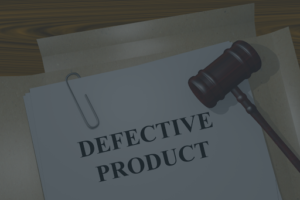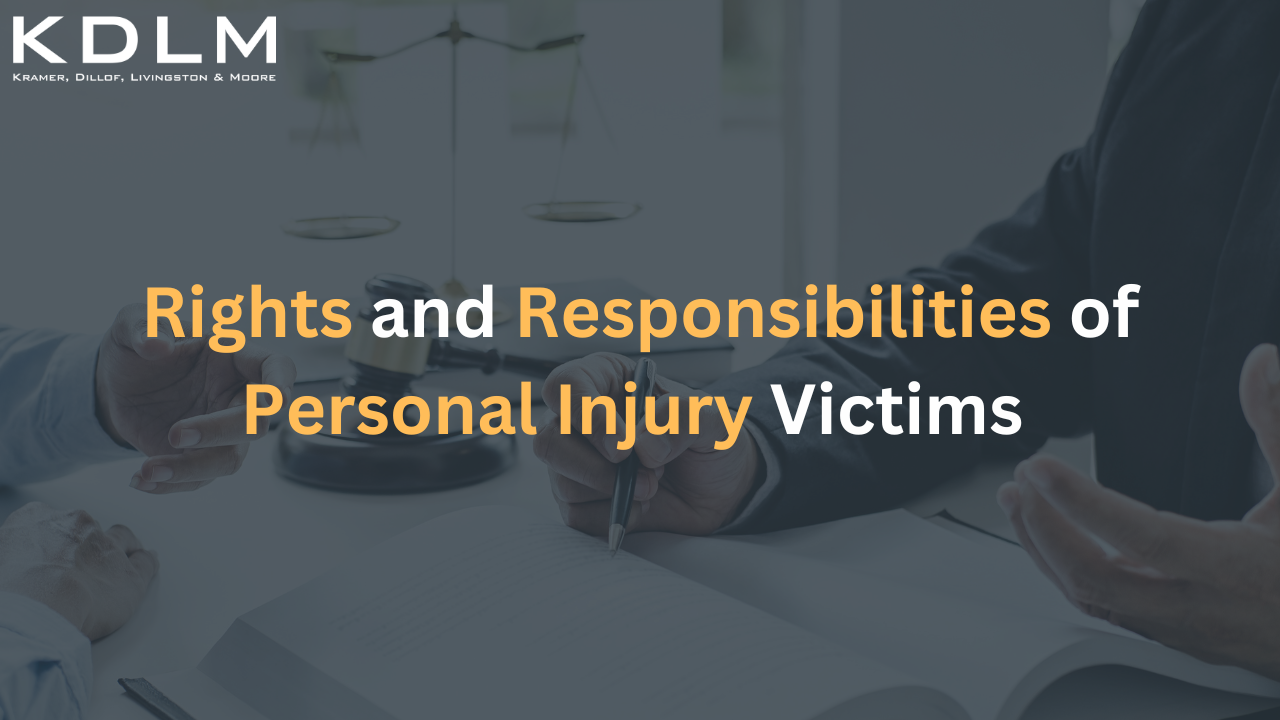Personal Injury Victims Sustaining an injury can be a challenging and overwhelming experience. Navigating the complexities of personal injury claims, and dealing with insurance carriers can be a daunting task. Understanding your rights in such situations is crucial to ensure you receive appropriate care and compensation benefits. In this article, we will explore the essential aspects of injury claims and how injured individuals can protect their rights throughout the process.
In New York, various types of injury claims are common due to accidents and incidents that result in harm or injuries to individuals. Some of the most frequently seen types of injury claims in New York include:
- Workplace Accidents: Workers can suffer injuries in various industries, such as construction, manufacturing, and transportation. Workplace accidents may be caused by hazardous conditions, lack of proper safety protocols, or equipment malfunctions. In such cases, injured workers may be eligible for benefits or, in certain situations, may pursue injury claims against third parties.
- Construction Accidents: Due to the nature of the construction industry, construction accidents are prevalent in New York. Workers on construction sites are at risk of falls, falling objects, machinery accidents, and other hazards, which can lead to severe injuries or fatalities.
- Motor Vehicle Accidents: Motor vehicle accidents, such as car crashes, motorcycle accidents, and truck accidents, are prevalent in New York. These accidents can occur due to factors like distracted driving, speeding, drunk driving, or reckless behavior, resulting in serious injuries to drivers, passengers, pedestrians, or bicyclists.
- Medical Malpractice: Medical malpractice claims arise when healthcare professionals, such as doctors, nurses, or hospitals, provide substandard care that results in injury or harm to patients. Examples of medical malpractice include misdiagnosis, surgical errors, medication mistakes, and birth injuries.
- Product Liability: Product liability claims arise when a defective or dangerous product causes injuries to consumers. Manufacturers, distributors, and retailers can be held liable for injuries resulting from products that were poorly designed, manufactured with defects, or lacked proper warnings.
These are just some examples of the types of injury claims often seen in New York. If you or someone you know has been injured due to the negligence or wrongful actions of another party,
it is essential to seek legal advice from an experienced attorney to understand your rights and options for seeking compensation.
Rights and Protections for the Injured Worker
Under New York laws, eligible workers are entitled to various benefits to help them cope with the challenges that arise from work-related injuries. These benefits typically include:
- Medical Expenses Coverage: New York legislation ensures that injured employees receive necessary and reasonable care. This coverage encompasses hospitalization, surgeries, doctor visits, medications, physical therapy, and other essential care needed for the injured worker’s recovery.
- Wage Replacement Benefits: If an injured worker cannot work due to an injury, New York provides wage replacement benefits. These benefits are a percentage of the worker’s average weekly wage, offering financial support during their temporary disability or incapacity to work.
- Temporary Disability Benefits: When an injury renders an employee temporarily unable to work, New York provides temporary disability benefits. These benefits offer a portion of the worker’s regular wages for the duration of their incapacity to work.
- Permanent Disability Benefits: In more severe cases where a workplace injury results in a permanent disability impacting the employee’s ability to work or perform their previous job duties, New York offers permanent disability benefits. The extent and amount of these benefits depend on the severity of the disability and its impact on the employee’s earning capacity.
- Death Benefits: In tragic instances where a workplace injury occurred and led to the death of an employee, New York provides death benefits to the deceased worker’s dependents. These benefits cover funeral expenses and offer financial support to surviving family members who rely on the deceased worker’s income.
By upholding New York’s laws, employers are incentivized to maintain safe working conditions and implement measures to prevent accidents and injuries. This system ensures that injured workers receive the necessary care and support while providing a balanced approach that protects the rights of workers and the interests of employers within the state’s workforce.
Rights and Protections for an Automobile Accident Victim:
As an injured victim of an automobile accident, you have certain rights that you should be aware of:
- Reporting Deadline for Benefits: You must report the automobile accident to the no-fault carrier within 30 days, or your benefits may be denied.
- 2. The Right to Seek Compensation: If another party’s negligence caused your injuries, you have the right to pursue compensation for your medical expenses, lost wages, pain and suffering, and other damages.
- 3. The Right to Medical Care: You have the right to receive appropriate medical care and treatment for your injuries, and it’s essential to seek medical attention as soon as possible after the accident.
- 4. The Right to Legal Representation: You have the right to consult with an attorney who specializes in automobile accidents. An experienced lawyer can inform you of your rights, handle negotiations with insurance companies, and build a strong case on your behalf.
- 5. The Right to Fair Compensation: You deserve fair compensation for the physical, emotional, and financial hardships you have endured due to the accident.
Rights and Protections for Victims of Medical Malpractice:
- Right to Seek Compensation: Victims of medical malpractice have the right to pursue compensation for their injuries, pain and suffering, medical expenses, lost wages, and other damages resulting from the malpractice. Seeking fair compensation is essential to aid in recovery and rehabilitation.
- Right to Quality Medical Care: Patients have the right to expect a reasonable standard of care from their healthcare providers. If they receive substandard care that leads to injuries, they have the right to seek accountability.
- Right to Informed Consent: Patients have the right to be informed about the potential risks and benefits of medical treatments or procedures. If they were not adequately informed and suffered harm as a result, they may have a valid claim.
- Right to Confidentiality: Patients have the right to privacy and confidentiality of their medical information. If their medical records are improperly disclosed and it leads to harm, they may have grounds for a medical malpractice claim.
Rights and Protections for Victims of Defective Products
- Right to Compensation: As a victim of a defective product, you have the right to seek compensation for your injuries, medical
 expenses, pain and suffering, lost wages, and other damages resulting from the product’s defect.
expenses, pain and suffering, lost wages, and other damages resulting from the product’s defect. - Right to Safety: Consumers have the right to expect that the products they purchase and use are safe and free from defects that could cause harm.
- Right to File a Claim: You have the right to file a product liability claim against the responsible parties, such as the manufacturer, distributor, or retailer of the defective product.
- Right to Evidence: You have the right to gather evidence to support your claim, including photographs of the product, medical records, receipts, and any other relevant documentation.
Reporting Your Injury
One of the first and most critical steps after sustaining a work-related injury or illness is to promptly report it to your employer. Timely reporting ensures that your employer and the insurance carrier are made aware of the incident, and it allows them to initiate the claims process promptly.
A no-fault claim is a claim with the no-fault carrier advising them about the accident such as your injuries, how the accident happened, date of accident, time, location, and treatment.
The deadline is that this must be filed within 30 days to avoid any issues with the medical benefits being denied by the no-fault carrier.
Seeking Medical Treatment:
After an accident, it is crucial to seek immediate medical attention to assess and treat your injuries. Even if you believe your injuries are minor, it’s essential to get a professional evaluation as some injuries may not be immediately apparent but can worsen over time if left untreated.
Seeking medical care is not only vital for your well-being but also plays a crucial role in your personal injury claim. Medical records serve as critical evidence of the injuries you sustained and the extent of the harm caused by the accident. By promptly seeking medical care, you establish a clear connection between your injuries and the incident, strengthening your claim.
Your Employer’s Responsibility:
In the context of a workplace injury, your employer has certain responsibilities concerning your medical care. You are entitled to medical attention and this obligation typically includes covering medical expenses, doctor consultations, diagnostic tests, surgeries, medications, physical therapy, and rehabilitation, as deemed necessary for your recovery.
Your responsibilities include:
- Reporting the injury promptly
- Engaging legal counsel as soon as possible
- Keeping detailed records of all medical expenses and lost wages
- Following any restrictions or limitations set by the healthcare professionals 5. Communicating any changes or updates in your condition to your legal counsel and insurance company
- Providing necessary documentation and evidence to support your injury claim 7. Cooperating with any investigation or evaluation conducted by the insurance company or legal authorities
- Maintaining open and honest communication with your legal counsel
Protecting Your Rights in Any Injury Claim:
To protect your rights throughout the claims process, consider the following steps:
- Document everything: Keep detailed records of your injury, medical care, expenses, and any correspondence with the insurance company.
- Consult with a KDLM attorney: KDLM can guide you through the legal complexities, ensuring your rights are protected and maximizing your chances of a favorable outcome.
- Be cautious on social media: Avoid discussing your case on social media platforms, as insurance carriers may use this information against you.
- Seek a second opinion: If you feel that your physician’s treatment is insufficient or that your injury is not being adequately addressed, consider seeking a second medical opinion.
For more information on the topic of medical malpractice, product liability, and motor vehicle accidents, please review our other articles regarding these topics.

